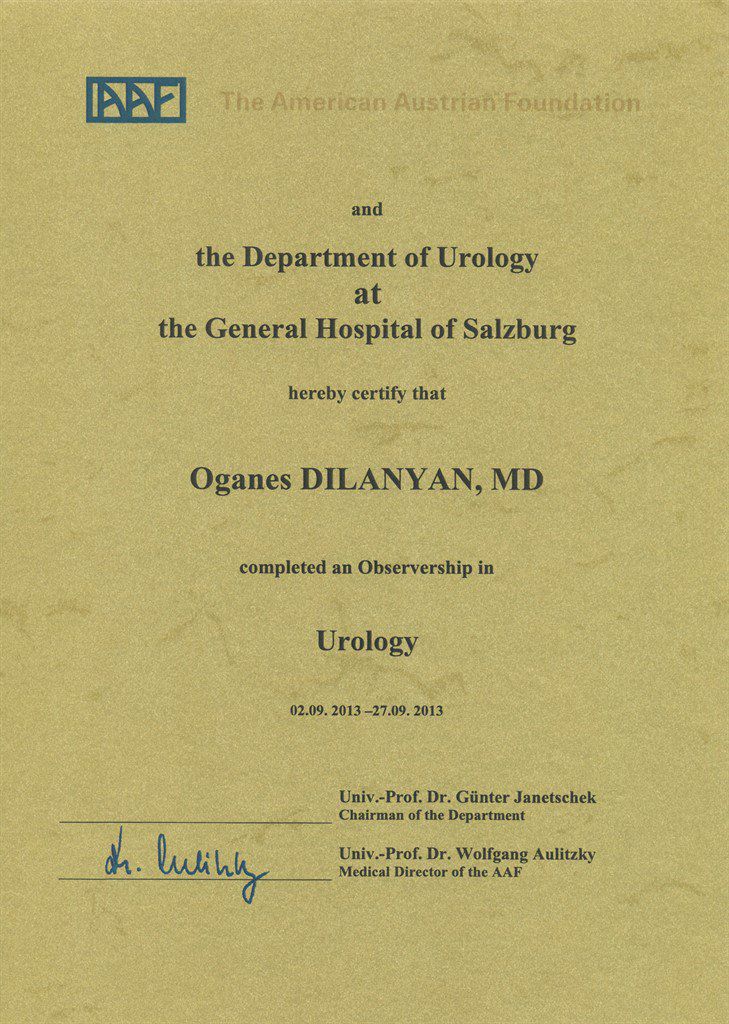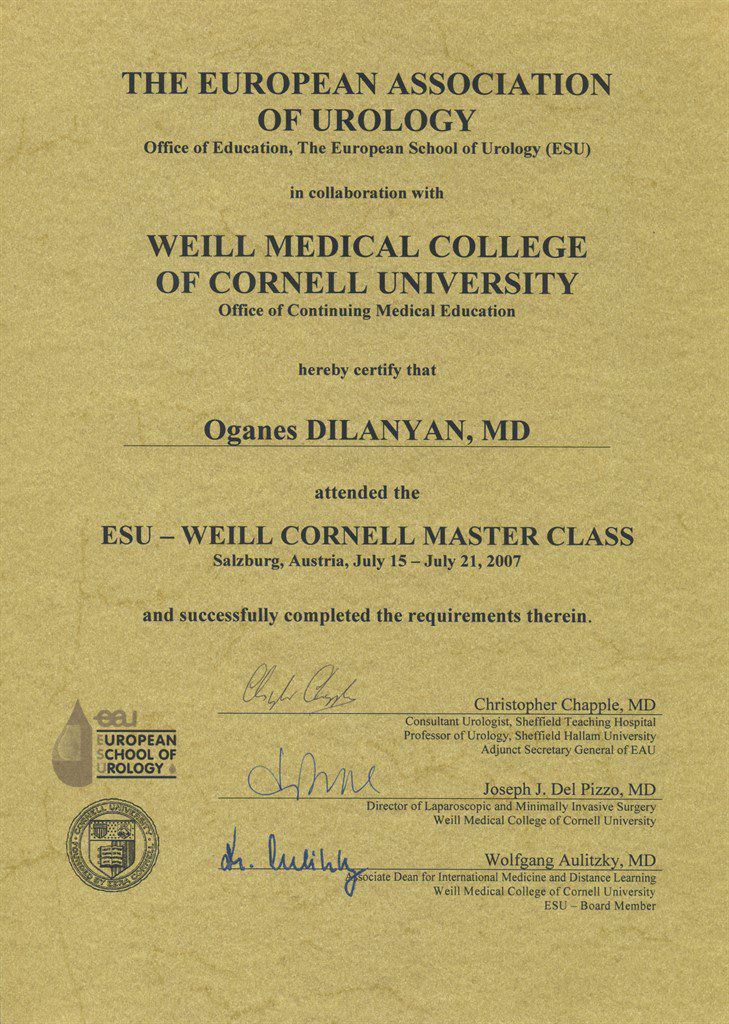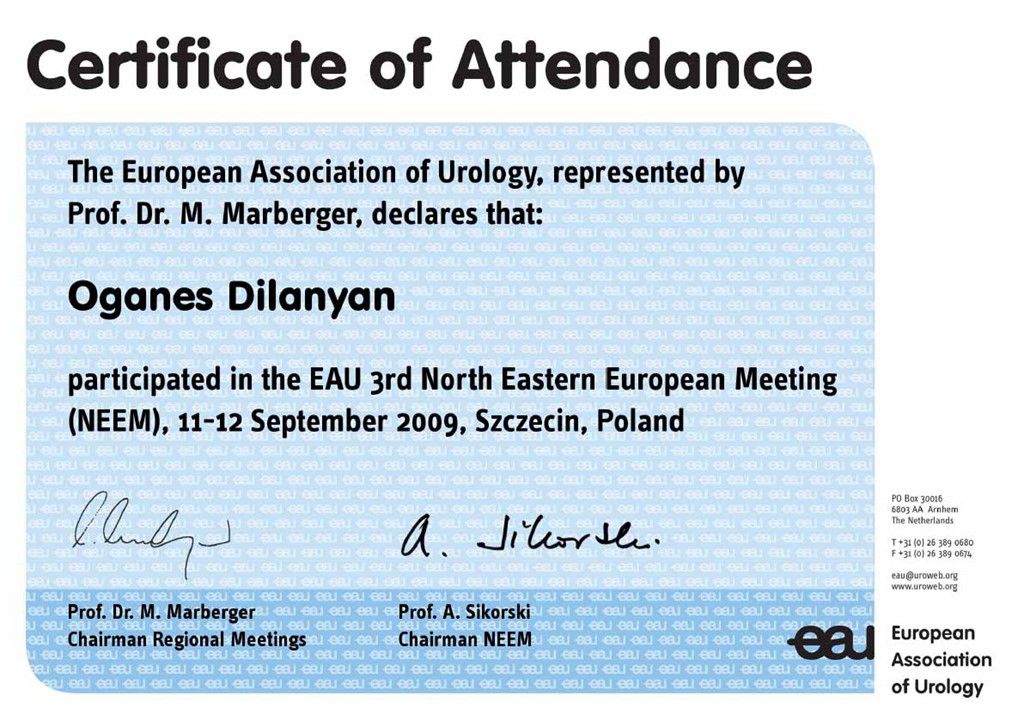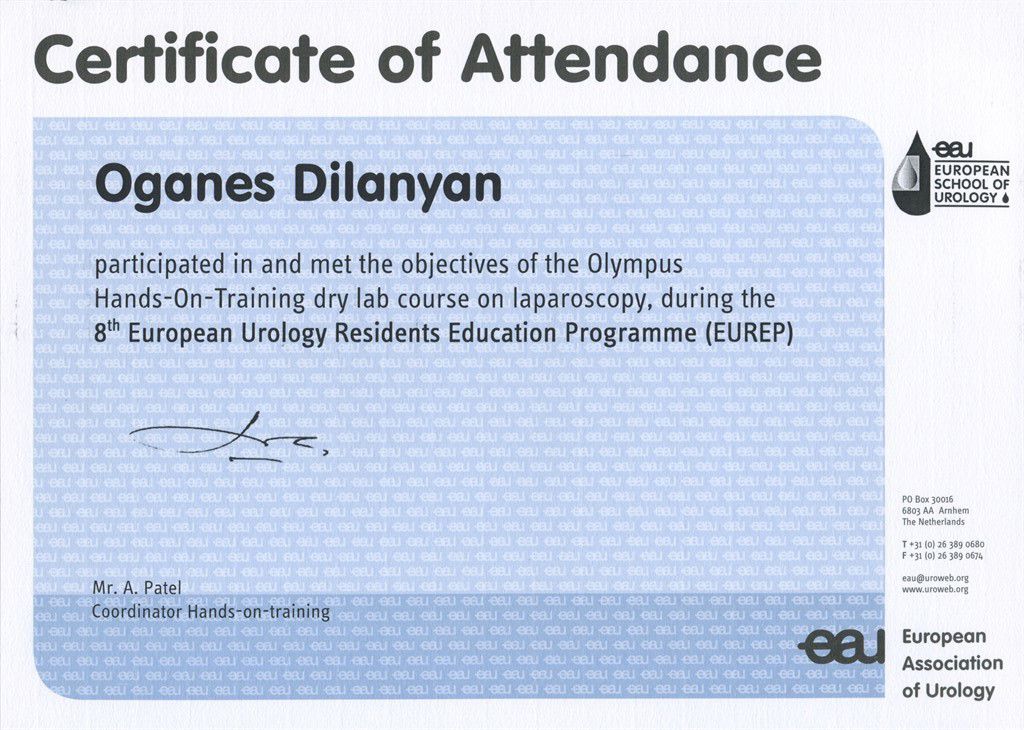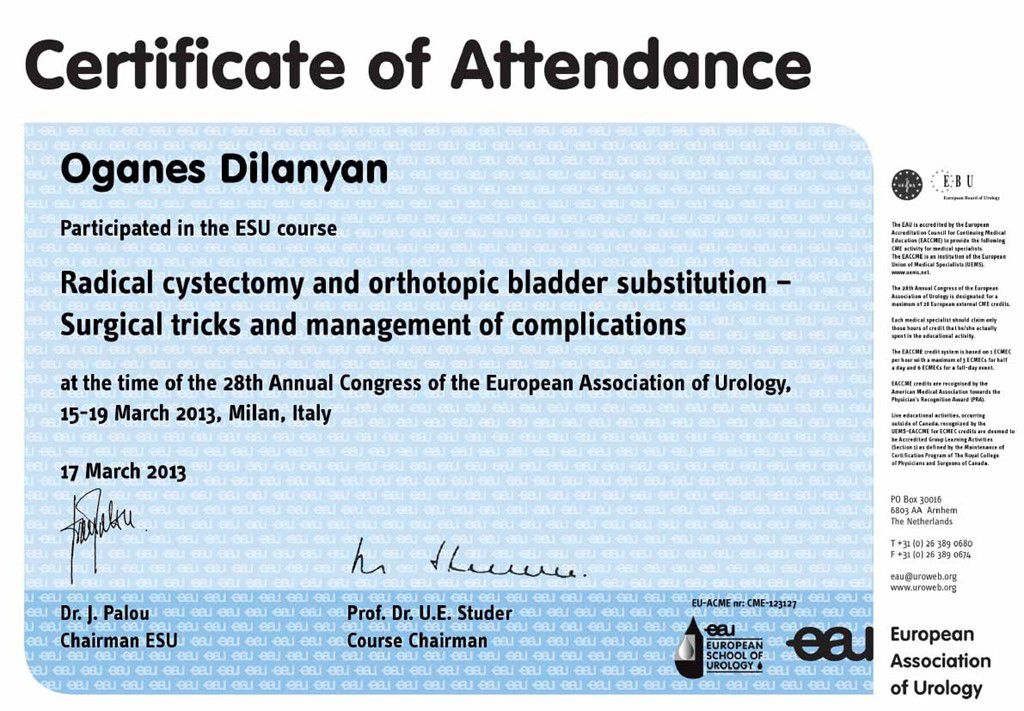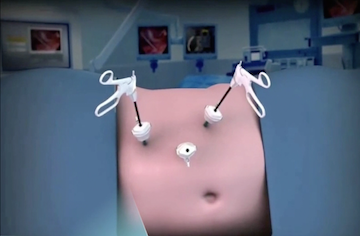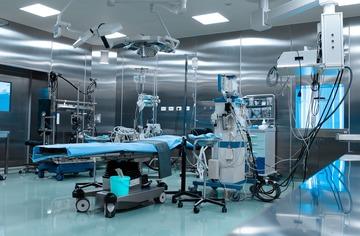Bladder Cancer
Bladder cancer in men and women
Malignant tumour of the bladder is a condition that can develop in both men and women and in the presence of this disease malignant tumours appear inside the organ. In this article I will talk about the up to date methods of diagnosing and treating of this disease.
Cancerous conditions of the bladder
It is frightening. A seemingly healthy person comes to see a doctor after noticing blood in the urine or following an ultrasound scan that detected a tumour. And what they hear shocks them: you need to have a cystoscopy and a biopsy because we suspect bladder cancer. It is a common belief that cancer in incurable. But I think one should never give up. Today we have precise diagnostic tools that let us determine the stage and tailor suitable and effective treatment options, radical surgery, radiotherapy or chemotherapy.
What is very important is to know that modern surgical treatment for bladder cancer in both men and women is not a mutilating surgery. Even if we have to remove an organ, we can reconstruct it from part of the bowel which helps avoid spending the rest of one’s life with tubes and urine bags. In the majority of cases it is possible to just remove the tumour and preserve the organ itself.
Treatment of bladder cancer
TUR of bladder tumour is the way of removing the tumour via the urethra. It is the first line of treatment of first stage bladder cancer and a necessary diagnostic method in the presence of bladder cancer in more advanced stages.
Bladder removal is a radical surgical procedure aimed at treatment of even advanced stages of cancer. We can perform this operation as open surgery or laparoscopic surgery.
Reconstruction of the bladder is usually carried out at the same time as the removal of the organ because otherwise the patient simply will not have any vessel in which to collect urine and they will have to carry two urine collection bags on the outside of the body for the rest of their life.
Symptoms of bladder cancer in men and women
“Just went to the loo one day, no pain, in fact I felt great overall, and then noticed I was urinating blood.”; “I went for a medical check-up for work, had an ultrasound and they told me there was a tumour, but the thing is I had no pain at all!”; “I’ve had all the tests done, including an ultrasound, a CT scan, an MRI scan and a biopsy…and they said they would have to remove my bladder, I will have to live with the bags”. These are pretty standard complaints of my patients who came face to face with this terrible diagnosis.

Very often symptoms of bladder cancer are either not pronounced or very mild. Only yesterday everything was fine. And now life is divided into “before” and “after”. Before the “bladder cancer” diagnosis and the question “what to do after”. A cancer diagnosis is perfectly capable of breaking the person psychologically simply because it poses a real threat to their life and also a threat of pain and suffering. And the worst thing is uncertainty. What to do, how to do it and in what order. Sime studies demonstrate that better informed patients have better treatment outcome because sometimes the outcome depends on the interaction between doctor and patient.
Hippocrates
Bladder cancer is a malignant tumour on the mucous layer of the bladder. As any other malignant tumour, this tumour is characterised by an uncontrolled division of cells and the ability of these cells to metastasise spreading to other remote organs.
Stages of bladder cancer in men and women
Any carcinogens excreted with urine affect the mucus layer of the bladder. And the leading place belongs to tobacco.
- Once modified, the cell of the mucus layer of the bladder starts dividing uncontrollably and so initially the first stage cancer develops.
- When it penetrates into the muscle layer it becomes the second stage.
- When it spreads beyond the bladder it the third stage.
- Spreading to other organs – fourth stage.
I do not tell you about the stages for nothing. The horror of the situation is that even in the second stage the person can only be cured by ENTIRELY removing the bladder.
…Second stage of bladder cancer and further stages can only be treated by removing the bladder.
Diagnosis of cancerous conditions
The success of the treatment for this type of cancer depends on the precise, thorough and quick diagnosis. It is always repeatedly stressed during conferences, workshops and other gatherings but the situation does not seem to change: in most clinics up to two months usually pass from the point of the first complaint by the patient about blood in the urine to the operation.
I would really like for every person who find themselves face to face with this terrible disease to understand that cancer does not wait. Time works against the patient. Is the tumour malignant? How deep has it penetrated into the wall of the affected organ? Are the nearby organs affected? Has it metastasised into the lymph glands and the lungs? What is the optimal treatment option that will help cure the patient?
These are the questions an oncologist-urologist is trying to answer sending the patient to all the different tests.
Ultraso, MRI, CT scan of the lungs of bladder
Is the first test that allows us to assess the size of the tumour. This test often helps us pick up the so-called “silent” tumours that have not yet made themselves manifest.
Allows to assess if the cancer has metastasised into the lymph glands and rule out the spread of the tumour into the neighbouring organs and assess possible widening of the pelvic blood vessels.
Computer tomography of the chest organs is a compulsory test that helps rule out metastasis in the lungs. If metastasis is detected unfortunately this makes the prognosis worse.
Tumour size does not matter. What matters is how deep the tumour has penetrated into the bladder.
We consider the following two investigations as the most important when diagnosing this disease: bladder cystoscopy and TUR biopsy.
Cystoscopy — looks at the organ on the inside. If tumours are present we perform a biopsy of the bladder and take a tissue sample which is sent for histological examination.
TUR of the tumour is the actual removal of the tumour itself endoscopically. Histological examination of the removed tissue sample helps to determine the stage of the bladder cancer more accurately. For the first stage TUR is used as a treatment.
The more the patient knows about the upcoming treatment the more effective the treatment will be. It’s the universal law of medicine and this is why we always explain to our patients everything that their treatment will involve, drawing diagrams and showing animation videos. The thing is, we doctor study for 10-12 years to qualify so how can a person without medical qualifications be expected to understand all the terminology? Will they understand everything about all possible complications and risks? Unlikely. Will they be able to fully interact with their doctor? Not really.
The better the patient understands the treatment the more effective the treatment will be.
Treatment of bladder cancer is an aggressive and hard battle of patient and doctor against the tumour. It involves latest endoscopic, laparoscopic and laser surgical procedures, preoperative and post-operative chemotherapy and radiotherapy followed by bladder reconstruction to improve the patient’s quality of life.
Bladder cancer surgery and combined treatment in men and women
Systemic chemotherapy plays a very important part in treating bladder cancer in men and women. In the 3rd and 4th stage we design a treatment plan that includes pre-operative chemotherapy, surgery and radiotherapy. In the latest stages chemotherapy or radiotherapy is sometimes required after the surgery but one should never give in to the disease and give up.
Bladder tumor surgery
This is a method of bladder removal via the urethra using a special instrument called a resectoscope. This surgery has more than one aim: if the tumour is in the first stage the surgery constitutes the treatment and if the tumour is in the second stage or further advanced this operation serves a diagnostic purpose. A histologist determines the stage of the cancer based on the analysis of the tissue removed during surgery. To understand this operation better please
Cystectomy. If cancer is diagnosed in the second or further stages bladder removal is recommended in both men and women according to the European urology association. This operation is usually accompanied by the removal of lymph glands as the lymph glands are usually the first place where cancer metastasises. When the bladder is removed the question arises of how the patient is going to collect and pass urine.
Cystoplasty. In the past if the bladder had to be removed the ureters had to be diverted to the outside of the body and the patient had to wear and regularly empty urine containing bags for the rest of their life. One can imagine the quality of life while having to do this. Nowadays it is possible to construct a new bladder using part of the bowel. If the patient does not require radiotherapy we create the new bladder in the way that allows the patient to pass urine in a natural way without the need of using tubes.
Is used in the first stage of bladder cancer. Chemicals or a BCG vaccine are administered into the bladder in order to kill the cancer cells.
Is used in the third and fourth stages of bladder cancer. Pre-operative chemotherapy improves the outcome of treatment in the 3rd and 4th stages. In some case chemotherapy is the only possible way of treatment.
We use this in various situations to treat bladder cancer. For example, post-operative radiotherapy improves the outcome of treatment if metastasis in the lymph glands are detected. We also use it when surgical treatment is not possible.
Professional Approach: Up to date approach to cancer diagnosis and treatment in line with the latest recommendations of the leading European Associations.
Our team: Specialised science-based oncology-urology team.
Board of doctors: A meeting concerning every single patient is held involving a urologist, oncologist, radiologist and chemotherapy specialist to determine the best course of treatment.
Equipment: Karl Storz, Covidien and Philips Medical equipment for accurate diagnosis and effective treatment.
Comfort: No queueing or waiting for a consultation, premium inpatient facility and professional care provision.
Safety: We only use methods recommended by professional associations such as EAU and AAU.
Result: Accurate diagnosis and effective treatment of cancers
We are also GCP certified, which confirms we provide the highest standards of diagnosis and treatment.
If you require treatment for bladder cancer in Moscow please contact us. We will arrange your hospital admission on the day of your arrival, will carry out all necessary tests and investigations and operate as soon as it is possible.



